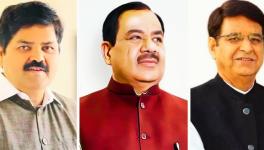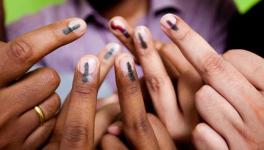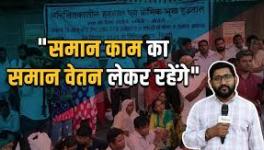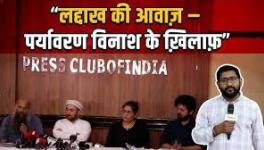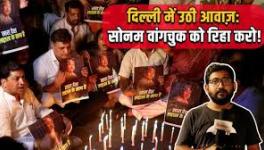The Real Story of Pew’s Tiny Survey that Says Modi Is Popular
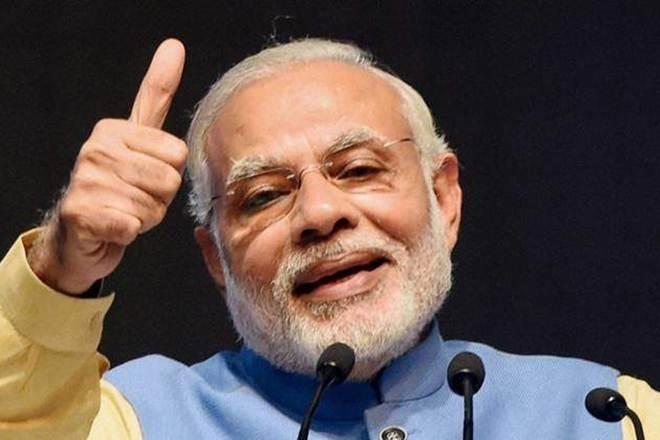
“Facts are stubborn things, but statistics are pliable,” said Mark Twain.
But even by loose standards of pliability, it is hard to imagine that the views of 0.0001% of a population could be ‘representative’ of said population. Especially, when said population belongs to India – a country of more than 1.3 billion people – the world’s largest democracy, often described as the most diverse one as well.
And yet a new political opinion survey conducted by American think-tank Pew Research Centre did just that. It interviewed just 2,464 people out of the 1.3 billion-plus populace to write an “intense” love story between “Indians” and the Modi-led regime. Pew might be used to doing such surveys in Western advanced countries with largely homogenous populations. But doing a similar exercise in a vast and diverse country like India is shockingly remiss.
“(T)he public’s love affair with current conditions in India is even more intense,” gushes the Pew report, comparing the situation to what it was when Narendra Modi took over as PM three years ago.
In the fine print, it is admitted that the sample is “disproportionately urban”, but that “the data are weighted to reflect the actual urban/rural distribution in India”. That’s an incredible sleight of hand. Given this fact, it is audacious of the report to make statements such as the following, given that the majority of our population resides in rural areas:
“Modi is very popular among men and women and among adults in both rural and urban areas.”
The survey merits attention because it has received widespread attention from the Indian media, with most lapping up the numbers uncritically as evidence of Modi’s “popularity” – “Nearly nine-in-ten Indians (88%) hold a favorable view of Modi,” as Pew proclaims.
Also the proclamations made in the survey appear at a critical time – with a bunch of state assembly elections coming up, and the 2019 general elections looming large.
What gives a tinge of black humour to the timing is that the economy is in a shambles.
“The public’s positive assessment of Modi is buoyed by growing contentment with the Indian economy: More than eight-in-ten say economic conditions are good, up 19 percentage points since immediately before the 2014 election,” says the survey.
Given that the economic slowdown in India has been making news for many months now, with people losing jobs across sectors – from IT sector to NREGA – one wonders who these “Indians” are that the surveyers spoke to. A recent CMIE report said that 9 million persons had lost jobs between October 2016 and October 2017.
The survey says that unemployment is the largest problem, but apparently people are happy with the way Modi government has “handled” the problem.
“Nearly three-quarters (73%) of Indian adults say a lack of employment opportunities is a very big problem in India,” Pew says.
“A comparable share of the public (72%) approves of the prime minister’s handling of this issue, and that assessment is up 10 points since 2016.”
The survey was conducted in 2017 between February 21 and March 10.
Granted that it was before the Goods and Services Tax (GST) was unleashed on the people, destroying people’s livelihoods to the extent that the BJP is now scampering to slash rates before the upcoming Gujarat elections. But it was post-demonetisation, the devastating aftermath of which is still being documented.
This is not the first misleading survey, of course. The recent ‘ease of doing business’ report by the World Bank took the views of 516 ‘contributors’ in two cities, Mumbai and Delhi.
Such misleading surveys add to a false narrative and are dangerous for an electoral democracy as large as this: “Indians’ approval of Prime Minister Narendra Modi and their satisfaction with both their country’s direction and the state of its economy have grown in recent years.”
Get the latest reports & analysis with people's perspective on Protests, movements & deep analytical videos, discussions of the current affairs in your Telegram app. Subscribe to NewsClick's Telegram channel & get Real-Time updates on stories, as they get published on our website.










